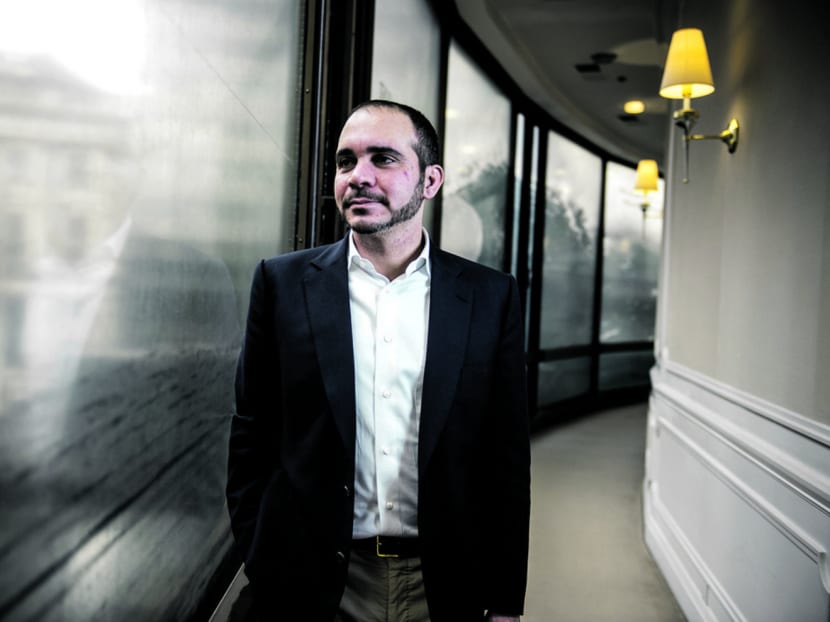Blatter playing politics: Prince Ali
ZURICH — FIFA presidential candidate Prince Ali bin Hussein claims incumbent Sepp Blatter is playing politics with a key World Cup decision.

Prince Ali bin Hussein plans to publish his campaign manifesto early next month, and said he would end FIFA’s policy of paying World Cup bonuses to the 209 member federations months before they elect their president. Photo: The New York Times
ZURICH — FIFA presidential candidate Prince Ali bin Hussein claims incumbent Sepp Blatter is playing politics with a key World Cup decision.
FIFA’s executive committee will give each continent its 2018 World Cup qualifying slots at a special session on May 30, the day after the election where Blatter seeks a fifth presidential term.
However, FIFA vice-president Prince Ali told the Associated Press he believes the timing, steered by Blatter, links an issue based on football merit to election promises.
“It is emblematic of what is wrong with FIFA right now,” the Jordanian prince told the AP in an interview. “The timing of it is completely contradictory to (Blatter’s) promise to not interfere in the election.”
Prince Ali’s claims come as Blatter pledged to intensify a reform process at world football’s governing body if re-elected as its president, but said “all parts of FIFA” must help raise its credibility.
The Jordanian royal plans to publish his campaign manifesto early next month. He said he would end FIFA’s policy of paying World Cup bonuses to the 209 member federations months before they elect their president.
The payments — each worth US$1.05 million (S$1.45 million) last year, doubling members’ US$1 million grant spread over four years — “oftentimes look like” election inducements, said the prince.
“There has to be a proper plan so that they can prepare and base their programmes on what (money) they know they are guaranteed,” Prince Ali said. “That way, you also give dignity back to your national associations.”
Development help for poorer members will be central to his campaign, with pledges to create more artificial turf pitches and a database of coaches able to work on FIFA scholarships anywhere in the world.
During Prince Ali’s 16-year leadership of the Jordan Football Association, the national team went further in World Cup qualifying than ever before. Jordan lost an intercontinental play-off to Uruguay for the final place in last year’s tournament in Brazil.
On Friday, FIFA’s ruling committee decided that an extra meeting in May will decide how to distribute 31 qualifying slots for the 2018 lineup in Russia, which enters automatically.
Since Blatter was re-elected in June 2011, he has encouraged confederations to pitch for more guaranteed places.
Those calls have been viewed as a challenge to the 13-team World Cup quota for European football’s governing body UEFA, which is supporting all three of Blatter’s election rivals: Prince Ali, Dutch Football Association chief Michael van Praag and former Portugal star Luis Figo.
“We should make decisions for the best interests of football and at the best time — and not have it based on politics,” Prince Ali told the AP.
Though Blatter is strongly favoured to extend his 17-year reign leading football’s governing body, Prince Ali insisted the 79-year-old Swiss can be beaten.
“Yes, of course, I think if national associations follow their hearts,” the prince said. “They are smart, they know what needs to be done. If they don’t feel intimidated, if they feel that they have their own choice, I think that this definitely can be won.”
Blatter is the favourite to win a fifth term as FIFA president when its member federations vote in May. He signalled in an interview with a Swiss newspaper, SonntagsZeitung, published Sunday that regional and national federations must help improve the image of the game’s administrators.
He said: “FIFA is, with the positive emotions that football unleashes, more influential than any country on Earth and any religion.” AP





